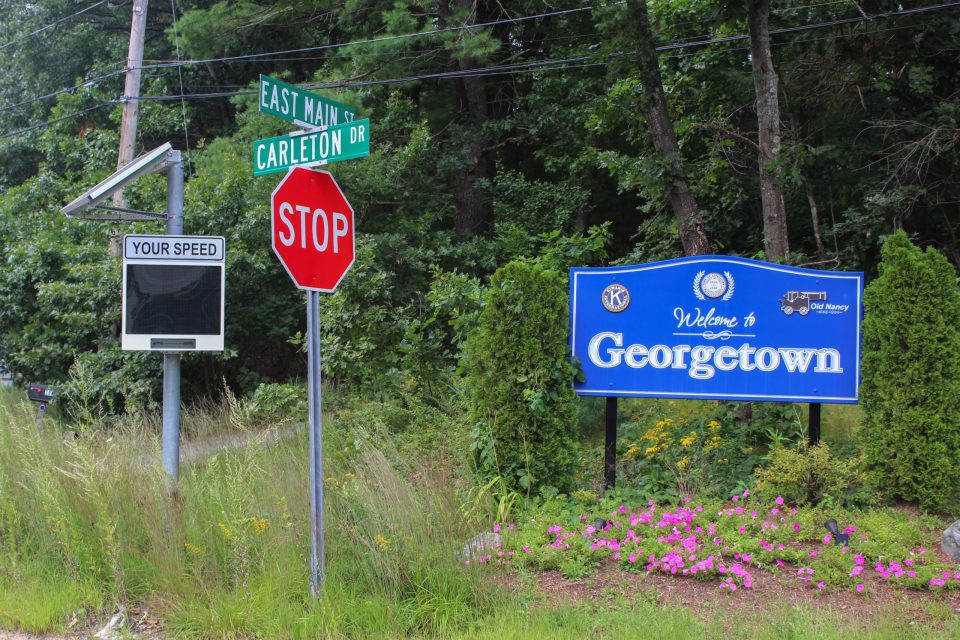GEORGETOWN – When Orlando Pacheco became the Town Administrator this month, one of the thorniest challenges he inherited was the two-plus-year-old fight over the proposal by J. Mello Trash Disposal Corp. to build a 500-ton transfer station on the narrow Carleton Road near Interstate 95.
Mello, which collects and processes trash in several communities on the North Shore, currently operates a 50-ton per day transfer station on Main Street in Georgetown. The company leases the land from the town for that station and is facing a deadline this year from the Department of Environmental Protection (DEP) to enclose the open station or close it.
The proposal to build a transfer station 10 times as large on privately owned land is now the subject of four court challenges, plus probably another to fight the Conservation Commission’s denial of a permit. Mello has appealed the denial of permits by the Planning Board, Zoning Board of Appeals and other boards.
At least one appeal is before the state Land Court. Another is at a District Court.
The proposed transfer station, which collects, consolidates and hauls away trash to incinerators, has generated considerable opposition from nearby residents. Opponents maintain that such a large transfer station is not needed to handle Georgetown volume of trash, but say Mello is building the large station to bring in trash from construction sites in eastern Massachusetts.
The Planning Board opposed allowing the higher volume of trucks entering and exiting Carleton Drive at Main Street. To handle the heavy truck loads, Carleton Drive would have to be rebuilt and police officers would be needed to direct traffic at the intersection.
The lawsuits are likely to be expensive for both Mello and the town. But Mello may be better able to absorb the legal costs than the town of Georgetown, which has allocated a budget for its legal expenses of about $80,000.
In the world of costly litigation, that budget could be depleted quickly in defending its regulatory boards’ decisions. Opponents of the Mello proposal are asking where the town will find the additional funds.
“In the short term, I don’t see it (the cost of the court cases) breaking the budget,” Pacheco said last week.
It could be more of a problem long term if the appeals go to trial, he said.
Pacheco hoped some of the appeals might be consolidate in the courts and thus reduce the amount of litigation and the costs of litigating them.
The town will know more when the DEP determines if the proposed site is suitable for a 500-ton transfer station, Pacheco said.
A veteran of town wars from several Massachusetts towns, Pacheco said he was hopeful that the issue could be resolved through negotiations.
“If we are committed to getting to yes, then we can have a larger conversation,” Pacheco said. “Is there something between a 50-ton site and a 500-ton site?”
Town administrators traditionally do not get involved in the regulatory boards’ procedures. Opponents of the Mello station suggest Pacheco might get involved to negotiate a host agreement with Mello for the transfer station.
“We need to play it out a little more. We need to find a middle ground,” Pacheco said. “I am happy to get in a room.”




